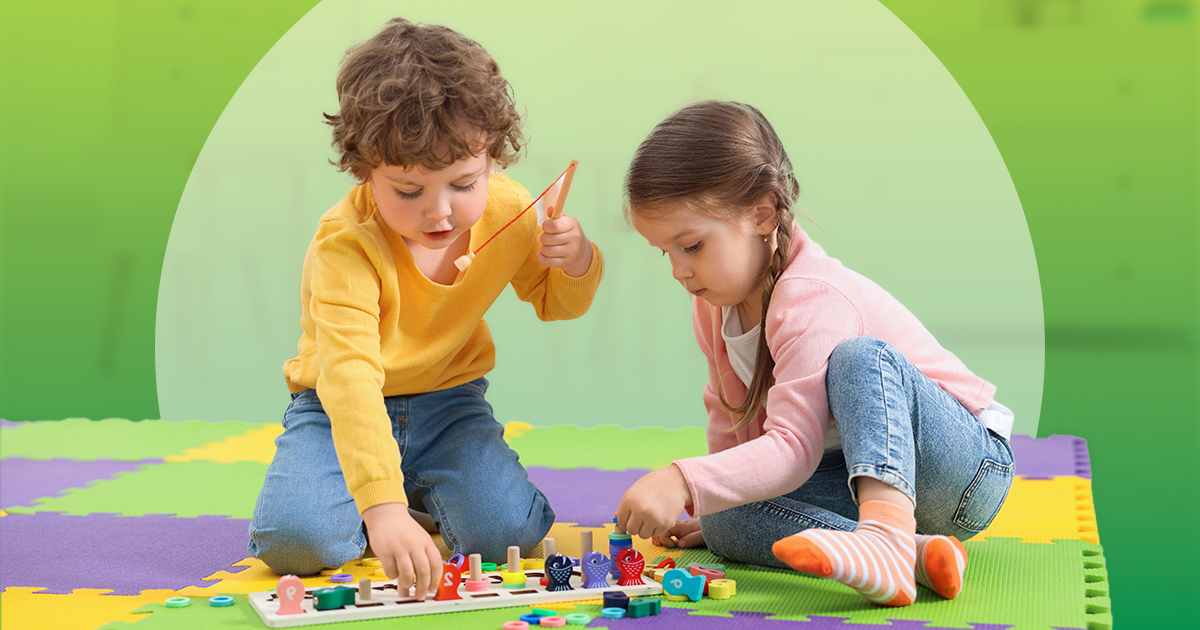Watching a child grow and develop is one of the most extraordinary and rewarding experiences a parent or caregiver can have. Each smile, step, and spoken word symbolizes significant progress in a child’s journey through infancy, toddlerhood, preschool, and beyond.
Childhood milestones are not just markers of growth but also essential indicators of how a child is developing physically, cognitively, socially, and emotionally. Having a general understanding of these milestones equips parents to celebrate each accomplishment with joy and recognize when additional support may be necessary.
In this blog, we discuss the typical developmental milestones across various childhood stages, discussing what you can expect and when, to help you better support and appreciate your child’s unique growth.
Why Milestones Matter
Childhood milestones act as signposts of development. They provide guidance and reassurance about whether a child is progressing typically in different areas such as motor skills, communication, social interaction, and emotional regulation. While every child follows their own timeline and may reach milestones at slightly different ages, being aware of average developmental windows helps parents and caregivers know when to celebrate achievements and when it may be helpful to consult professionals if concerns arise.
Milestones also empower adults to create environments that support learning and development. Recognizing when a child is ready to try new challenges or engage in more complex activities means they can be encouraged appropriately, fostering confidence and continuous growth.
Infant Milestones (0-12 Months)
The first year of life is a time of rapid development, where an infant transitions from total dependence toward increased mobility and engagement with the world.

Physical Milestones
Newborns
Physically, newborns begin by gradually gaining control of their head muscles.
Zero to Three Months
By about one to three months, most infants can lift and hold their head steady while lying on their stomach.
Four to Six Months
Between four and six months, babies typically start rolling from their back to their tummy, and they begin to sit with minimal support.
Seven to Twelve Months
Toward the end of the first year, many will crawl, pull themselves up to stand, and possibly take tentative first steps.
Cognitive Milestones
Zero to Three Months
Cognitively, infants begin by developing recognition of caregivers’ faces and voices. In the early months, babies show increasing responsiveness to sounds and visual stimuli.
Four to Six Months
Around four to six months, infants explore objects, often using their hands and mouths to learn about texture and shape.
Seven to Twelve Months
By their first birthday, they commonly comprehend simple words such as “mama” or “bye-bye” and may begin pointing to objects of interest.
Social Milestones
Zero to Three Months
Socially and emotionally, infants initially show reflexive smiles but soon progress to social smiles that respond to the presence of familiar faces.
Four to Six Months
Between four and six months, babies develop attachment, recognizing parents and primary caregivers.
Seven to Twelve Months
As they approach one year, infants often display stranger anxiety, showing wariness or distress around unfamiliar people, as a sign of their growing social awareness and attachment bonds.
Toddler Milestones (1-3 Years)
The toddler years are marked by a surge in mobility and independence.
Physical Milestones
Physically, toddlers transition from tentative walking to confident exploration. They begin to run, climb onto furniture, and navigate stairs with increasing coordination.
Fine motor skills blossom during this period, enabling toddlers to stack blocks, turn pages of a book, and hold crayons with more precision.
Cognitive Milestones
Cognitive development advances rapidly in toddlers. Language skills expand from simple words to short sentences. Toddlers also start understanding basic instructions and engage actively in pretend play, which enhances problem-solving abilities and creativity.
Their curiosity often leads them to explore their environment more thoroughly, learning through hands-on experiences.
Social Milestones
Socially and emotionally, toddlers begin to express a wide range of emotions and occasionally test boundaries as they assert newfound independence. They start to interact more with other children, although play often remains parallel rather than fully cooperative.
This period also includes strong attachment to caregivers but a growing desire to do things “all by myself.”
Preschool Milestones (3-5 Years)
In the preschool years, children continue to refine physical, cognitive, and social skills as they prepare for formal schooling.

Physical Milestones
Physically, preschoolers develop greater balance and coordination, enabling them to hop, skip, and even use scissors. They show increasing independence in daily tasks such as dressing and feeding themselves.
Cognitive Milestones
Cognitive milestones during this period include a huge leap in language complexity. Children begin using more complicated sentences and ask numerous “why” questions as they seek to understand the world.
Early literacy concepts emerge as preschoolers often recognize letters and numbers and may start counting. Their attention span lengthens, allowing engagement in more sustained activities.
Social Milestones
Socially and emotionally, preschoolers move toward playing cooperatively with peers, sharing toys, and taking turns during games. They understand and follow routines and rules better and begin to display empathy by recognizing the feelings of others.
This stage also marks the start of self-regulation skills—managing emotions and behavior in social contexts.
School-Age Milestones (6-12 Years)
During the school-age years, children’s physical skills continue to develop rapidly. Structuring activities can help your child develop self-discipline during this critical period in their lives.

Physical Milestones
Participation in sports and physical activities enhances their strength, speed, and coordination.
Fine motor skills also improve considerably, enabling neat handwriting and the ability to engage in crafts and projects requiring dexterity.
Cognitive Milestones
Cognitively, children transition from learning to read to reading to learn. They become fluent readers and writers, and their thinking becomes more logical and organized.
Understanding of abstract concepts such as time and money develops, and problem-solving skills grow stronger. School tasks require planning, memory, and concentration, further enhancing cognitive abilities.
With apps like Carrotology, you can help your older child manage and complete daily tasks through our gamified rewards system called Carrotines. Try the app today.
Social Milestones
Socially and emotionally, school-age children form more complex friendships and understand the importance of loyalty, cooperation, and fairness. Their self-esteem builds through successes and supportive relationships.
They learn to express their emotions more appropriately and develop teamwork and conflict resolution skills crucial for successful interactions with peers and adults.
Tips for Celebrating Milestones
Celebrating milestones is about more than simply recognizing achievements; it’s about creating meaningful experiences that encourage continued growth. Capturing these moments through photographs, videos, or journaling helps create treasured memories your family can revisit time and time again.
It’s also important to celebrate your child’s interests and unique strengths. Nurturing these passions supports confidence and self-expression, whether it’s painting, music, or building blocks.
Positive reinforcement plays a vital role—celebrate both big and small efforts with praise and encouragement to boost your child’s motivation and resilience. Many families find joy in establishing traditions around milestones such as birthdays or “first day” celebrations, which add an extra layer of excitement and significance. Above all, patience is key.
Remember that every child develops at their own pace, and variations in timing can be perfectly normal.
When to Seek Professional Advice
While most children develop within typical ranges, parents must be alert to potential red flags.
For example, infants who show little or no eye contact or don’t respond to sounds by six months may need evaluation.
Similarly, toddlers who do not use any single words by 16 months or have trouble walking by 18 months might benefit from professional attention. Limited social interaction or difficulty managing emotions can also warrant further assessment.
Early intervention is often very effective, so consulting a pediatrician, speech therapist, occupational therapist, or child development specialist can provide valuable support and guidance. These professionals can offer tailored strategies and therapies to help children thrive whenever delays or challenges are identified.
Laying the Foundation
Childhood milestones are much more than developmental checkpoints—they are meaningful moments that signify growth, learning, and discovery. Understanding what to expect and when can help caregivers create nurturing and supportive environments that encourage every child’s unique journey.
Celebrate each smile, step, and word with enthusiasm and love. These milestones lay the foundation for a happy, healthy future, filled with endless possibilities.
Remember that while milestones offer helpful guidance, what truly matters is the joy of watching your child grow at their own pace and flourish into the best version of themselves.

